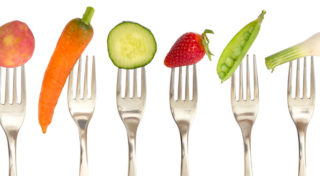 Prior to undergoing a bariatric procedure, patients receive education and counseling on how to change their intake and eating habits to prepare for life after surgery. Patients typically follow a diet that is similar to what will be required of them after surgery. This allows for patients to get accustomed to the changes and also facilitates weight loss, which makes the surgery safer.
Prior to undergoing a bariatric procedure, patients receive education and counseling on how to change their intake and eating habits to prepare for life after surgery. Patients typically follow a diet that is similar to what will be required of them after surgery. This allows for patients to get accustomed to the changes and also facilitates weight loss, which makes the surgery safer.
Nutrition for bariatric patients should not be any different than good nutrition for non-bariatric patients, except for one essential aspect. Patients who have undergone gastric bypass, sleeve or adjustable gastric banding surgeries no longer have the capacity to hold large amounts of food, so nutritional quality of foods in the diet needs to high. Physical changes to the stomach also change the dynamics of digestion and food breakdown.
How Digestion Works
Your body absorbes nutrients from foods by breaking them down via digestion. Your stomach plays a vital role in digestion, although it is not the only player on the team. Your mouth, saliva & esophagus also play a role. Once you consume food, your saliva starts the digestive process while layers of smooth muscle draw food from the esophagus into the stomach and on through the digestive system. Glands inside the stomach produce stomach acid and enzymes that digest food. Digestive enzymes are also released into the small intestine, so digestion continues in the small intestine.
Listen to Your Surgeon & Nutrition Team
Because physical changes to the stomach occur with the gastric sleeve and gastric bypass & intake is limited with gastric banding, it is very important to listen to your surgeon and nutrition team to ensure proper nutrition. It is not okay to merely eat smaller portions of undesirable foods, because the valuable space in your limited capacity stomach will be wasted. Here at WeightWise, we advise post-op patients to consume three meals per day, focusing on nutrient quaility first. By focusing on nutrient quality, patients also satisfy hunger for prolonged periods of time. Lean protein foods provide many nutrients, are dense and keep hunger at bay. Non-starchy vegetables provide vitamins & minerals, as well as fiber. The use of fruits and healthy fats in the diet are regulated by strict guidelines. In addition to proper food choices, there is a huge emphasis on staying hydrating. Adequate hydration allows the body to function properly and ensures thirst & hunger cues are not being confused.
Limited food capacity & changes in digestion and absorption also require vitamin & mineral supplementation. We offer a wide variety of supplementation options, including multi-vitamins, calcium citrate, iron, B12, Vitamin D, probiotics, and B vitamins. Specific recommendations and guidelines are provided to each patient, based on their individual needs. We encourage our patients to discuss their specific needs regularly with their surgeon & nutrition team to make sure they receive optimal nutrition as they lose weight and gain muscle through daily exercise.
